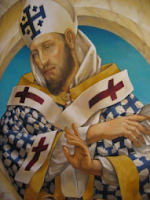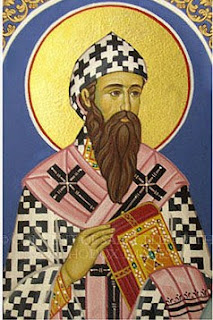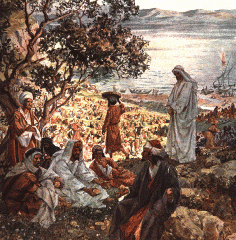St. Wenceslaus, Patron of the Czech Republic, Martyr

Optional Memorial - September 28th Saint Wenceslaus of Bohemia (c. 907-929). He was the son of Vratislav I, Duke of Bohemia, whose family was converted by Saint Cyril and Saint Methodius, and Drahomira, daughter of a pagan chief; she was baptized on her wedding day, but never abandoned her pagan beliefs. His paternal grandmother, Saint Ludmila of Bohemia, was Wenceslaus' teacher. She instructed him in the faith and to be a wise leader. It was from her that Wenceslas received his commitment to imitate Christ in all things. He completed his education at the university at Budweis. When Wenceslas was 13, his father was killed during a pagan reprisal against Christianity, and his grandmother became regent. Jealous of the influence that Ludmila had on Wenceslas, Drahomíra conspired to have her killed. Ludmila was placed under house arrest. A short time later, three henchmen strangled her with her veil while she prayed in her private chapel. After Ludmila’s murder, Drahomíra ass


